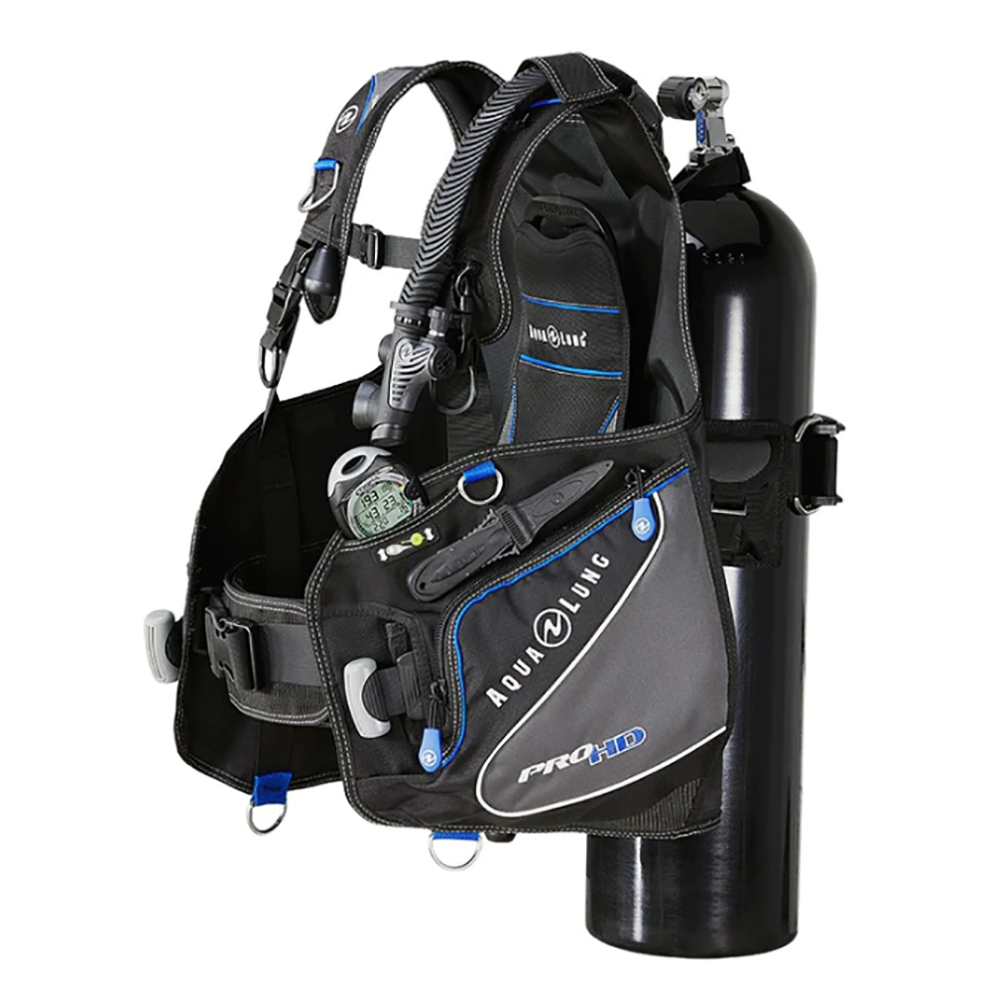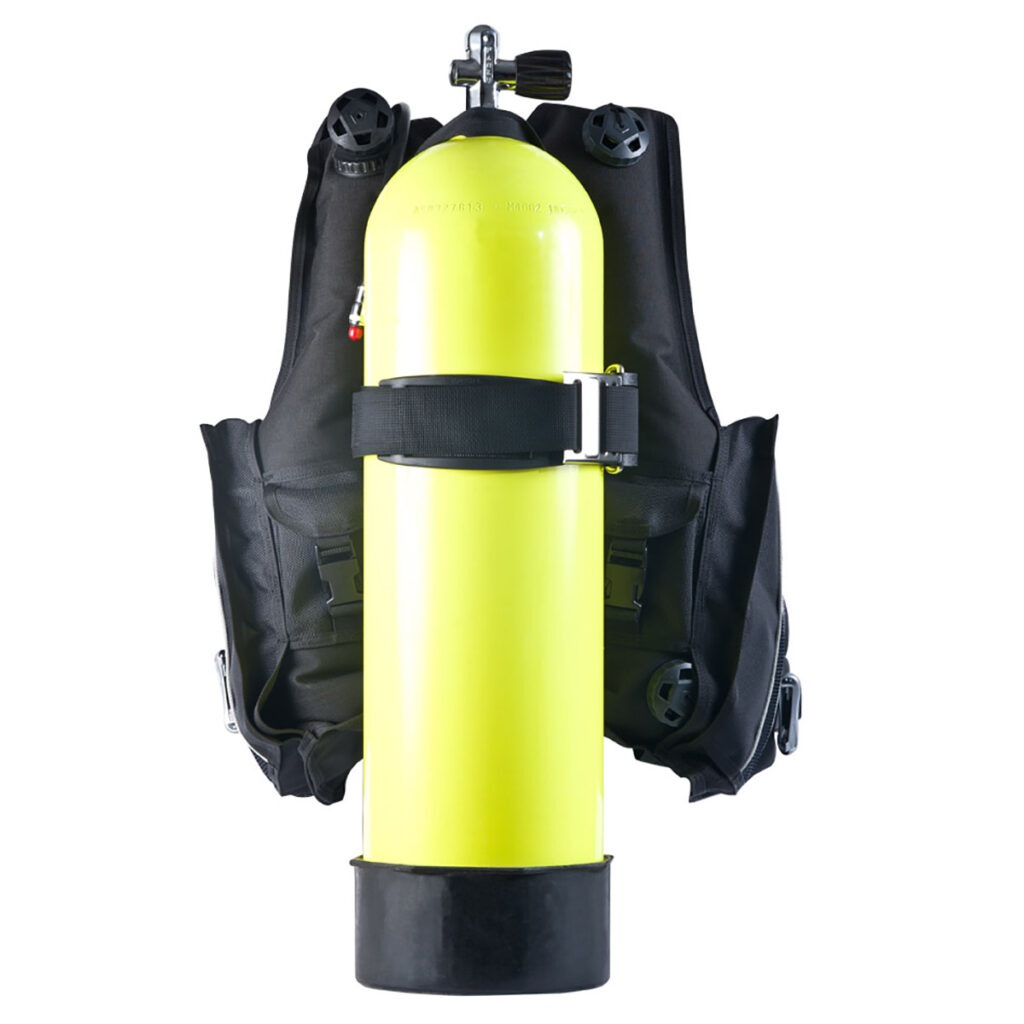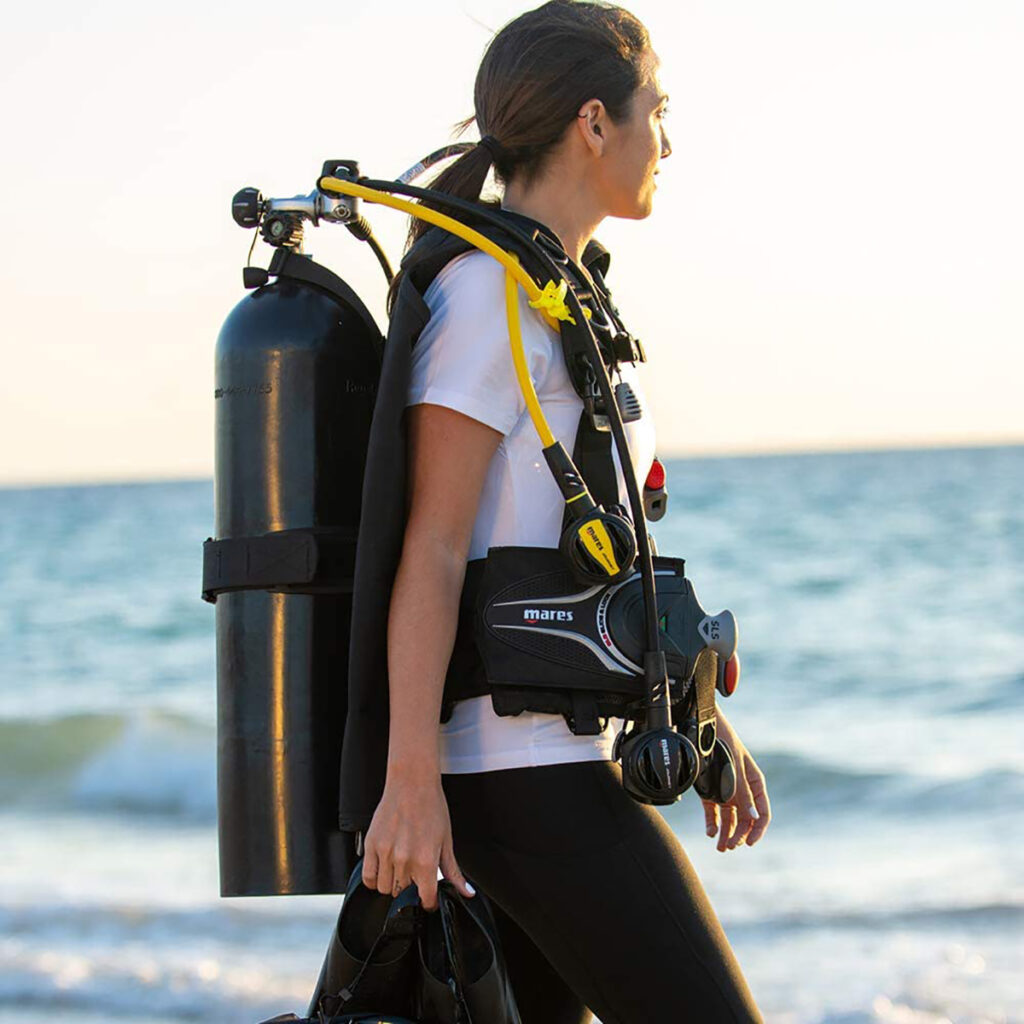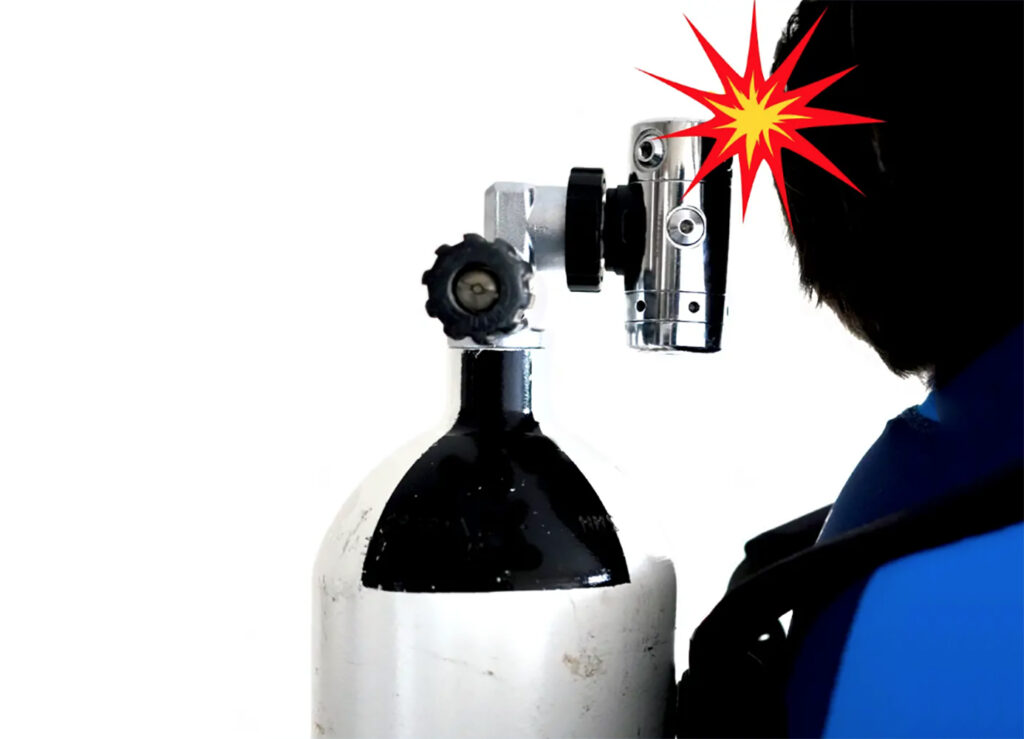During diving, many divers, even the most experienced, frequently hit their heads (back of the neck) on the first stage of the regulator. The regulator is mounted on the diving tank’s valve.
Of course, you will immediately think that their scuba tank is mounted too high in relation to the buoyancy compensator. It probably is, but how do you determine the optimal height?
There are several methods of estimating the position when attaching a scuba tank to a BCD, and we recommend lining up the top edge of the BCD (the part closest to the tank valve) with the valve (the opening for the first stage regulator) of the scuba tank.

On some regulators, there is also the option of replacing the hose (left-right), so you can turn the first stage and reduce its height (turn the bulky part downwards), but this is not always possible.

Also, many buoyancy compensators have a top strap that fits loosely around the scuba tank valve. That strap is not a handle for carrying the BCD, but just secures the diving bottle from falling out and swaying, and it is excellent for regulating (measuring) the height of mounting the bottle on the BCD. Namely, in most cases, the length (extent) of that strap can be regulated and thus adjust the optimal position of the bottle on the back (prevent placing the bottle too low).

It should be emphasized that setting the tank too low leads to tightening of the hose during diving (pulling the regulator out of the mouth) and potentially the diving tank also interferes with leg movements, which is much worse and potentially more dangerous than hitting the head on the first stage on the tank!
However, the first thing you must do is adjust your diving behavior, which means that you should not raise your head high back, but instead look up or move your head back and to the side by moving your shoulders and upper body. Try to keep your chin in roughly the same position at all times, and deflections with the entire upper torso. By doing so, you can reduce the deflection of the head towards the valve group and avoid hitting the first stage.
